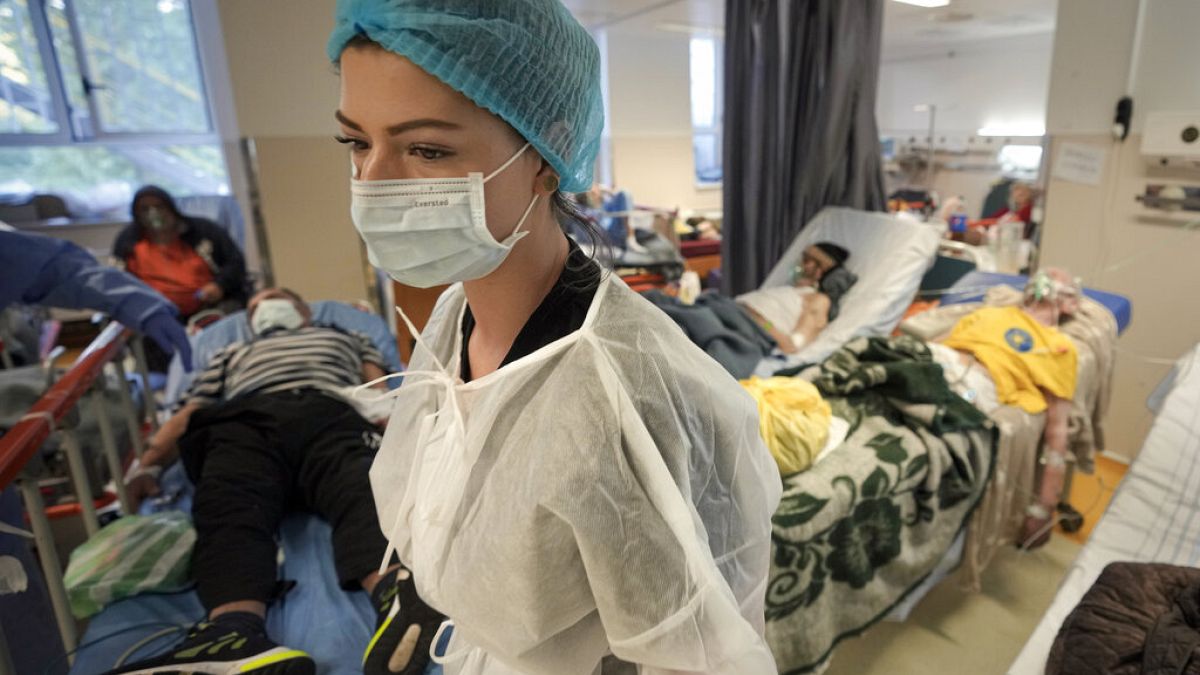Authorities in Russia and eastern Europe take various measures to combat COVID-19, as vaccine scepticism contributes to rising infections.
Hospitals in Romania are continuing to feel the strain, with rising numbers deaths due to COVID-19.
Medical staff are under huge pressure and patients who survived long periods in intensive care units have spoken about the mental pressures of knowing that many people around them have died.
Last week it was reported that the pace of vaccination had more than doubled after the country recorded its highest daily COVID-19 death toll since the beginning of the pandemic.
Meanwhile, Russian authorities in Crimea have set up checkpoints at the entry to Sevastopol, checking drivers for their vaccination status. Proof of vaccination has also been demanded at hotels and restaurants as many headed to resorts on the south coast.
It comes as the country has again reported a record number of new coronavirus infections.
According to the latest official report published on Saturday, 40,251 new cases of coronavirus were identified in the latest 24 hour-period, the highest number since the start of the pandemic.
A non-working week has started across Russia, a measure aimed at stemming the spread of the coronavirus in the country.
Ukraine is suffering through a surge in coronavirus infections. Only 16% of the adult population is fully vaccinated — the second-lowest share in Europe after Armenia's rate of slightly over 7%.
Authorities in the country are requiring teachers, government employees and other workers to get fully vaccinated by November 8 or face a suspension in pay. In addition, proof of vaccination or a negative test is now needed to board planes, trains and long-distance buses.
This has created a booming black market in counterfeit documents.
The COVID crisis has been aggravated by vaccine scepticism in many parts of Eastern Europe and Russia. While vaccines are plentiful, there is a widespread reluctance to get them in many countries — though notable exceptions include the Baltic nations, Poland, the Czech Republic, Slovenia and Hungary.
Germany's outgoing Chancellor Angela Merkel has said she is "worried" about the resurgence of the pandemic in the country, warning against "a certain recklessness".
Although she defended the fact that vaccinations are not compulsory, she said she was "very saddened" that "two to three million Germans over the age of 60 are still not vaccinated".
In London, hundreds of protesters — opposed to the coronavirus health pass in other countries — marched through the city on Saturday.
They blocked major roads throughout the capital and marched to the Canadian and Australian embassies to show “solidarity” with other people opposed to health passes internationally.
